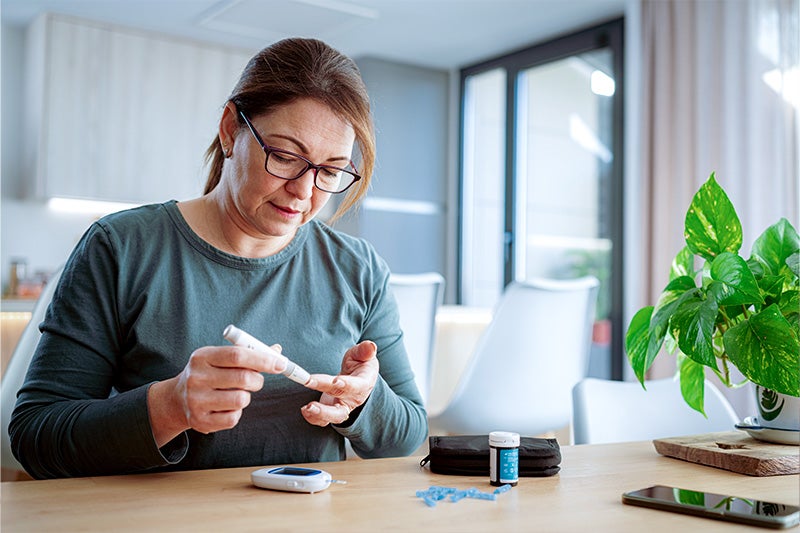Recognizing Symptoms with St. Mary’s Health Care System
Diabetes is a chronic condition that affects how your body processes sugar (glucose), a key source of energy. Early detection is crucial for managing diabetes effectively and preventing complications. At St. Mary’s Health Care System, we are dedicated to helping you recognize the warning signs so you can take proactive steps toward better health.

Who Is at Risk for Diabetes?
Certain factors increase your risk of developing diabetes. You may be at higher risk if you:
- Have a family history of diabetes
- Are overweight or obese
- Lead a sedentary lifestyle
- Have high blood pressure or cholesterol
- Are over the age of 45
- Have a history of gestational diabetes (diabetes during pregnancy)
What to Do if You Have Symptoms
If you notice any of these early signs, don’t ignore them. Early diagnosis and treatment can help prevent serious complications like heart disease, kidney damage, and nerve problems.
Common Early Signs of Diabetes
The symptoms of diabetes can develop gradually, making it easy to overlook them. Here are some of the most common warning signs:
-
Frequent Urination (Polyuria): Excess glucose in the blood causes the kidneys to work harder, leading to increased urination.
-
Increased Thirst (Polydipsia): Excess urination can lead to dehydration, making you feel constantly thirsty.
-
Unexplained Weight Loss: If your body isn’t properly using glucose for energy, it may start breaking down muscle and fat, leading to weight loss.
-
Extreme Hunger (Polyphagia): Even after eating, you may feel unusually hungry because your body isn’t properly using glucose.
-
Fatigue: When your cells aren’t getting enough energy, it can leave you feeling tired and sluggish.
-
Blurry Vision: High blood sugar levels can cause swelling in the lenses of your eyes, leading to temporary vision changes.
-
Slow-Healing Cuts and Wounds: High blood sugar can impair circulation and immune function, slowing down the healing process.
-
Tingling or Numbness in Hands and Feet: Nerve damage (diabetic neuropathy) can develop due to prolonged high blood sugar levels.
-
Frequent Infections: High glucose levels can weaken the immune system, making you more prone to infections such as urinary tract infections (UTIs), yeast infections, and skin infections.
Get Screened at St. Mary’s Health Care System
Our primary care providers are here to help with diabetes screenings, diagnosis, and management. We offer compassionate, expert care at multiple locations:
Primary Care Locations:
- Athens Internal Medicine Associates – Athens, GA
- Community Internal Medicine of Athens – Athens, GA
- Georgia Family Medicine – Watkinsville, GA
- Good Samaritan Primary Care – Greensboro, GA
- Sacred Heart Primary Care – Lavonia, GA
- St. Mary’s Family Medicine – Bogart, GA
- St. Mary’s Internal Medicine Associates – Athens, GA
- St. Mary’s Primary Care – Athens, GA

Take Charge of Your Health
If you suspect you may have diabetes or are at risk, don’t wait to take action. Schedule an appointment with one of our St. Mary’s Medical Group providers to get tested and start managing your health today. Early intervention makes all the difference in living a healthy, active life!



